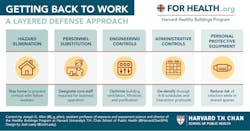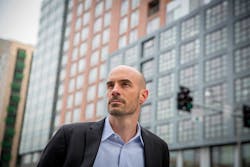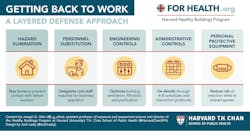Will Anything Change After All This?
Where to start?
What an extraordinary time we are now all in. When I sat down a month ago to write my Editor’s Note for April, America’s COVID-19 death toll had just passed 2,000. As I write this, that number has past 62,000 in the U.S.
That’s more than the entire U.S. body count of the Vietnam War, packed into just two months.
Let that sink in.
Sadly, my friend to whom I referred here last month, a cheerful, multi-talented Ingersoll Rand alum, joined that list on March 30, at age 77. We mourn him every day here. But odds are that already you also know someone who has died, or another who has lost a friend or relative to this pandemic. It is a grim connection that so many of us will share, yet hopefully one that may bring all of us closer together when this darkness ends.
Indeed, my 25-year-old son, a newly minted carpenter’s apprentice waiting anxiously for new construction projects to restart, asked me the other day, “Dad, when this is all over, do you really think anything is going to change?” I thought about that for a moment, and just answered, “God, I hope so.”
Then I wondered what I really meant. I guess my dream is that we will all come out of this kinder and smarter, and healthier, both mentally and physically. Already, there are so many inspiring things happening across just our industry, alone, that gives me actual optimism, even in the face of daily medical and economic news that can be so hard to hear.
But our industry WILL be part of the solution for all this. Of that, there is no doubt. And there are big changes ahead in how engineers will design, operate and maintain existing and new buildings.
Last summer at a Schneider Electric event in Andover MA, I had the good fortune to meet Joseph G. Allen, assistant professor of exposure assessment science at Harvard University’s T.H. Chan School of Public Health. Allen is the principal investigator leading the school’s ongoing, multi-year COGfx Study about how buildings affect occupant health. And he is also co-author of the just-released book, Healthy Buildings: How Indoor Spaces Drive Performance and Productivity.
Last month, speaking to the Harvard Gazette about the pandemic, he predicted:
Companies are going to come back to a different world where their workers have a heightened awareness about the risk of infectious disease transmission and how the building influences that. So people’s expectations are going to be very different… The positive side here is that we can take steps to reduce risk, right? We know what to do. It’s all manageable. It’s not this helpless or hopeless situation. We just have to be smart about how we do it.
Yes, we just have to be “smart.” Luckily, that’s part of an engineer’s job description. By now, all of us have seen behavior on the news this spring that is not smart. And it puts too many of us at risk. But engineers know better. And luckily, many of you already are working long hours to help, whether as part of ASHRAE’s national and regional committees, or through your own firms, or even on local boards for schools or municipalities.
Truly, this is the time for engineers to raise your voice, no matter the venue. Architects and contractors, too. At the end of the day, our industry is about making the world work better. And when all of this is over, that is exactly what will be needed. “We just have to be smart about how we do it.”
------------------------------------------------------------
To comment on this article, e-mail me at [email protected].
To see previous Editor's Notes columns, click here.


